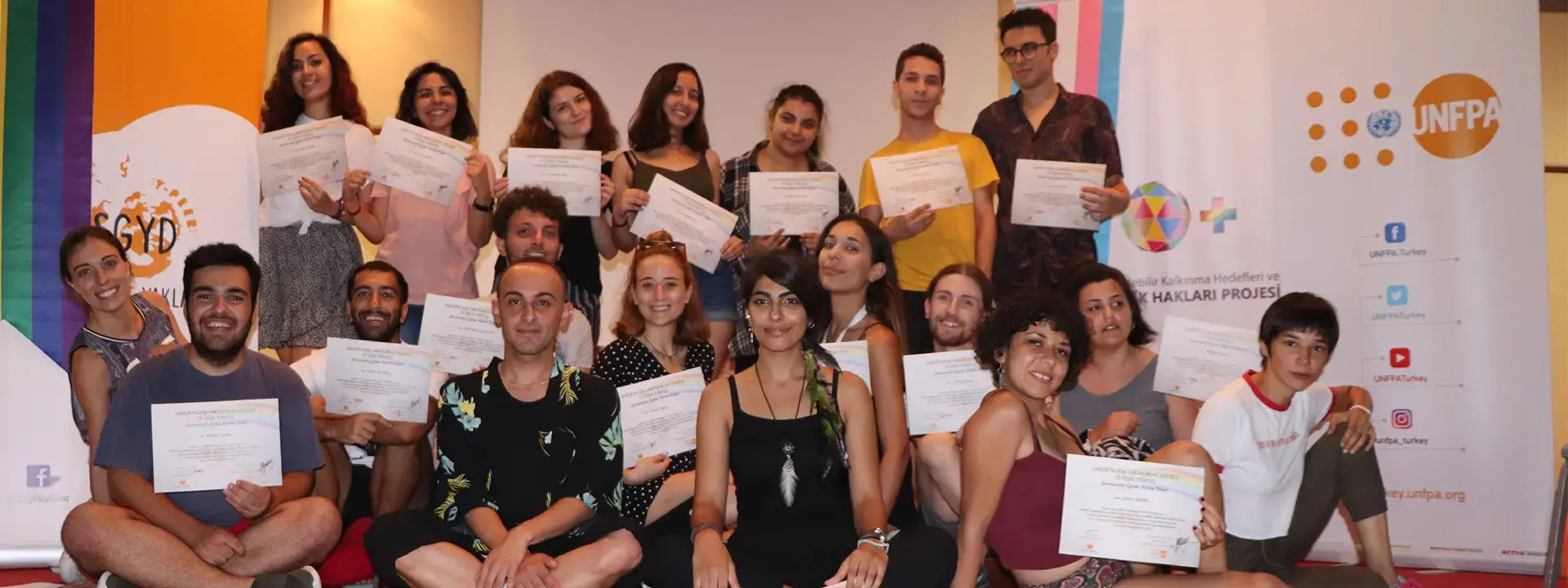There are 13 million young people in Türkiye between the ages of 15 and 24. Young people make up 16% of Türkiye’s population. UNFPA is committed to investing in adolescents and youth and helping them gain access to opportunities. Türkiye is a country that is experiencing a significant youth bulge. Therefore, social investments in young people can help to achieve a healthy, socio-economically productive and poverty-free society.
UNFPA Türkiye is working on developing the skills and leadership of young people, their organizations, and organizations that support them, in order to ensure that diverse adolescents and youth have effective voices not only in UNFPA programming, but also in advocacy for national policies and programs. Although UNFPA Türkiye has been working on many issues surrounding youth Sexual Reproductive Health and Rights (SRHR) such as improving knowledge of young people on SRHR through innovative peer education programmes, advocating for youth-friendly health services and access to SRH education in schools, there are many things to be accomplished.
UNFPA has been working with Ministries, Civil Society Organizations and the private sector to realize the unmet needs of young people. Over the last years, UNFPA has been trying different methods, such as peer education, theatre-based trainings, edutainment activities etc. to reach different youth groups to improve their knowledge on sexual and reproductive health.
In the scope of the 7th Country Programme (2021-2025), UNFPA Türkiye is working on the development, implementation and scaling-up of gender-sensitive, rights-based legislation and policies on sexual and reproductive health for vulnerable groups and youth; institutionalizing pre-and in-service training on sexual and reproductive health services, including family planning and HIV and youth peer-education programming, customized for vulnerable groups; designing outreach activities for vulnerable groups and youth-friendly service models for safer sexual and reproductive behaviour; combating child marriages and adolescent pregnancy through prevention programmes.


